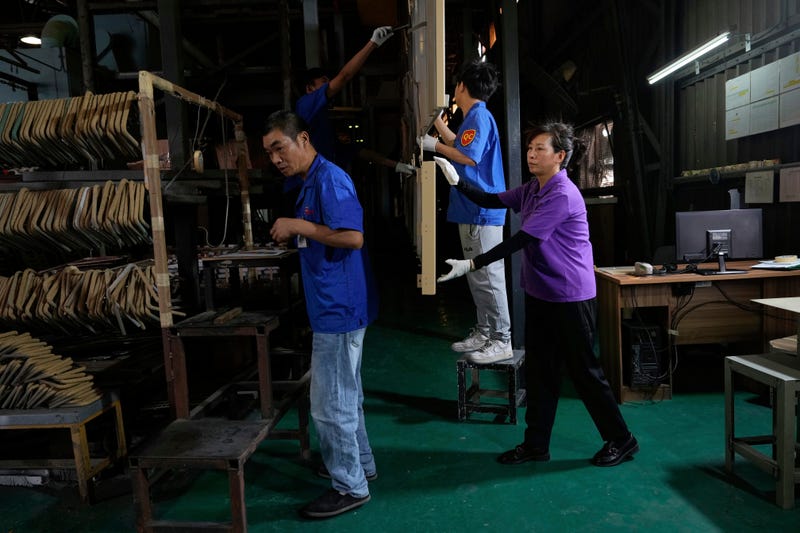
HONG KONG (AP) — China’s factory activity contracted for the seventh consecutive month in October, the government said Friday, as a newly announced truce in the trade war between the U.S. and China offers some hope for a stronger recovery in exports.
The official manufacturing purchasing managers index slipped to 49 in October from 49.8 in September, worse than forecast, the China’s National Bureau of Statistics reported, based on a survey of factory managers.
Measured on a scale between 0 and 100, a PMI reading below 50 indicates contraction.
On Thursday, U.S. President Donald Trump said the U.S. will cut its fentanyl-related tariffs on China from 20% to 10% after his meeting in South Korea with Chinese leader Xi Jinping, bringing down U.S. tariffs on Chinese goods from 57% to 47%.
China has been diversifying exports from the U.S., with shipments to regions including Southeast Asia and Africa growing. Exports to the U.S., however, have dropped by double-digits for six straight months.
A U.S. tariff cut means Chinese exports will be able to “regain more competitiveness in the U.S. market and we could see some recovery of direct exports to the U.S. soon”, HSBC economist Taylor Wang wrote in a note on Friday.
But “despite tariff truce progress, global uncertainty continues affecting manufacturing sentiment,” said Wei Li, head of multi-asset investments at BNP Paribas Securities (China). “U.S.-China agreements will likely prevent further deterioration rather than drive a robust recovery,” said Li.
China’s eight-day Golden Week national holiday in October contributed to slower factory activity, said Huo Lihui, chief statistician at the Bureau of Statistics. But a “more complex international environment” also contributed to October’s weaker data, he said.
China is also moving to reduce its reliance on investment in manufacturing that drives its massive exports, seeking to spur stronger consumer spending, while attempting to curb price wars and excess manufacturing capacity in many industries.
A prolonged downturn in the property market is weighing on consumer confidence and on investments in construction and real estate.
The ruling Communist Party highlighted those aims in documents released after a top level meeting last week that mapped out development priorities for the coming five years. They showed that manufacturing will continue to be China's focus, building on high-tech industries.